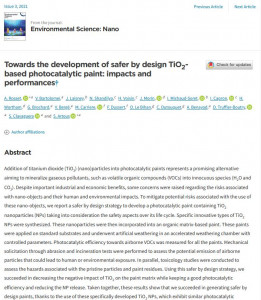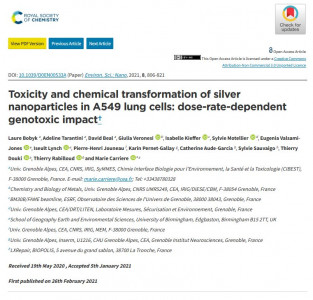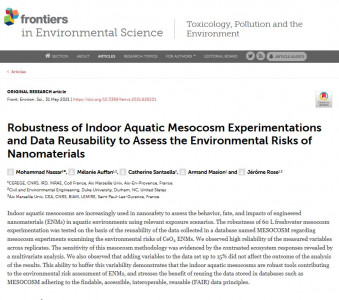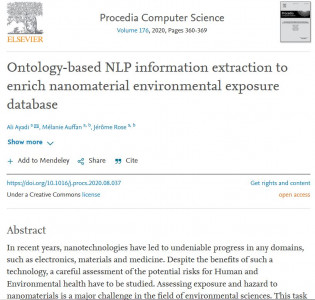Highlights
Regulatory Developments
-
Update from the EU Commission: Regulatory changes for substances in nanoforms
-
ECHA strategy on substances in nanoforms
-
Update on the OECD Test Guidelines for
nanomaterials safety testing
Nano-Forms and Human Health
-
Grouping concept for Nanomaterials
-
The EFSA guidance on the risk assessment
of the application of nanoscience and nanotechnologies in the food and feed chain – potential risks for human health
-
Overarching characteristics of nanoforms that could have impact on health
-
Updates in search for unifying nanoscale features that impact living organisms
Nano-Forms in the Environment
-
New developments in modelling the flows of nanomaterials to the environment
-
Environmental impact of TiO2 nanoparticles used as UV filters in sunscreen cosmetics
-
Nanomaterials and nano-plastics in aquatic
environments
The Experts
Björn Braun Evonik Resource Efficiency | Francesco Cubadda Italian National Institute of Health (ISS)/EFSA Working Group on nanoscience and nanotechnology in food/feed | Kenneth A. Dawson Centre for BioNano Interactions, University College Dublin | Laurence Deydier StephanEuropean Chemicals Agency (ECHA) | Tamara Galloway University of Exeter | Mar Gonzalez Organisation for Economic Co-operation and Development (OECD) | Andrej Kobe European Commission | Jerome Labille European Centre for Research and Teaching in Environmental Geoscience (Cerege) | Iseult Lynch University of Birmingham/Facility for Environmental Nanomaterials Analysis and Characterisation (FENAC) | Bernd Nowack Swiss Federal Laboratories for Materials Science and Technology (EMPA) | Karsten Schlich Fraunhofer Institute for Molecular Biology and Applied Ecology | Katharina Schwarz Fraunhofer Institute for Toxicology and Experimental Medicine | Blanca Serrano The European Chemical Industry Council (CEFIC) | Christine Spirlet International Zinc Association | Michael Stintz Technical University Dresden | Lang TranBritish Institute of Occupational Medicine (IOM) | Karin Wiench BASF









